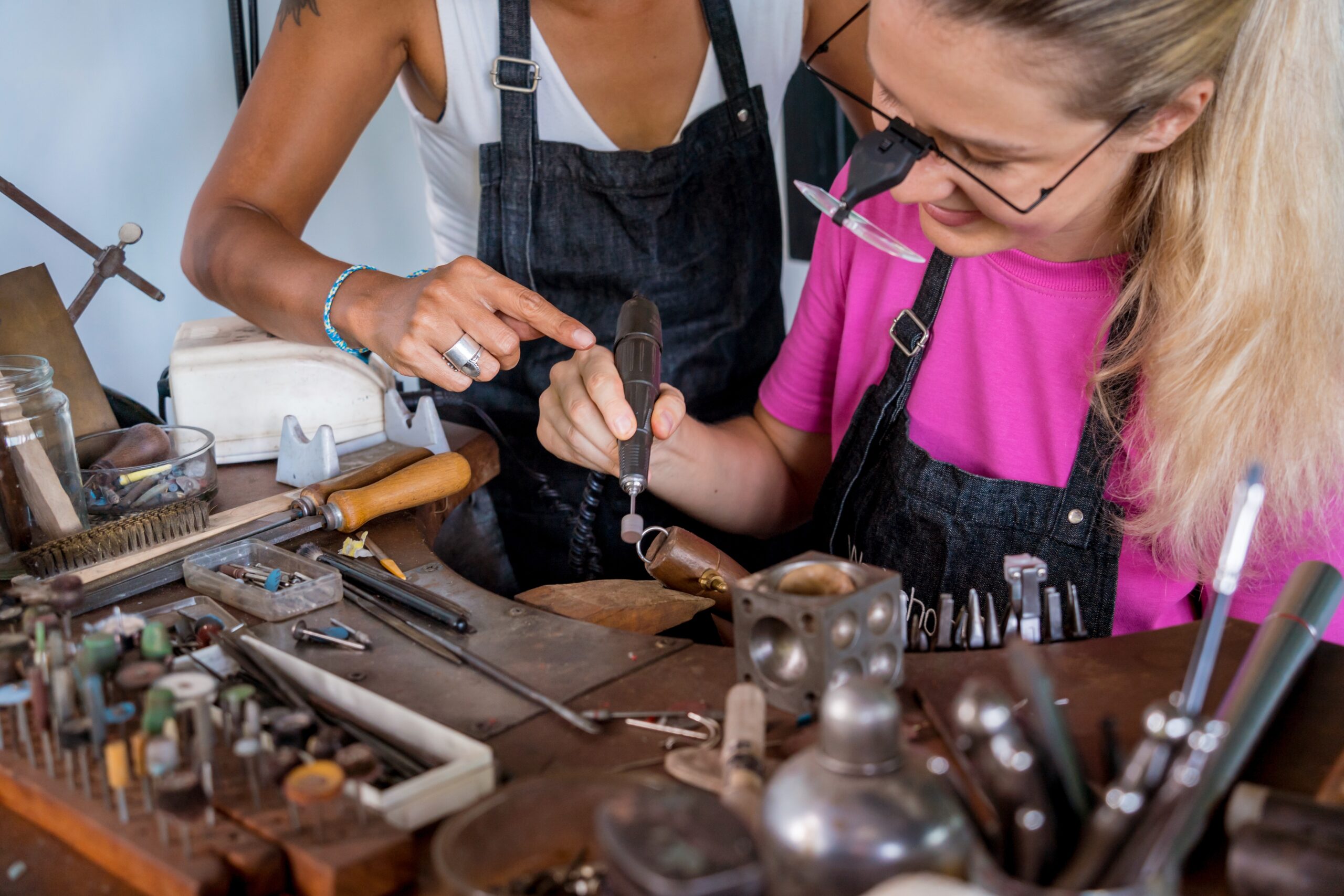Jewellery Repair
Repairing jewellery is an extremely tricky job. Work often pretends to be something else, metal is not what it is labelled, or sold as and the customer's memory fades with time, so that jewellery is often given to the repair person as something different thas it's real condition or materials. What follows is a list of questions...
1 Minute Read
Repairing jewellery is an extremely tricky job. Work often pretends to be something else, metal is not what it is labelled, or sold as and the customer's memory fades with time, so that jewellery is often given to the repair person as something different than it's real condition or materials.
What follows is a list of questions. If you can answer all of them about a piece before you begin work it is likely that all will be well. Answer as many of them as you can, at least mentally and repair work should be made a great deal easier.
- What is the metal? (metals)
- What stone type is it? (Basic rule: protect all stones from heat)*
- What existing damage is present? (Protect yourself)
- What previous repairs were done to the piece and how done?
- Describe mentally or on paper: what is there now?
- What will be there? What are you going to do to the jewellery?
- How best to approach it in view of the above?
- What potential damage and problems may occur during repair?
Now you may repair the piece. Always leave room for making a mistake. Repairs tend to surprise you when you least expect it.
Note that some stones, diamond, garnet, synthetics may take a certain amount of heat without damage, however it is best to wait for experience to tell you when you may so work. In all cases slow air cooling is essential.
Table for converting American ring sizes to German (metric =circumference in mm.)
| 1 | 39 | 5 | 49.5 | 9 | 59.5 |
| 1- | 40.5 | 5- | 51 | 9- | 60 |
| 2 | 41.5 | 6 | 52 | 10 (av woman's size) | 62 |
| 2- | 43 | 6- | 53.5 | 10- | 63.5 |
| 3 | 44.5 | 7 | 54.5 | 11 | 65.5 |
| 3- | 45.5 | 7- | 56 | 11- | 66.5 |
| 4 | 47 | 8 | 57 | 12 | 67.5 |
| 4- | 48 | 8- | 58 | 12- | 69 (bottom line) |
| 13 | 69 (top line) |
NOTE: if making a blank up from sheet add the thickness of the metal to the length of the blank when you cut it out; more to the small sizes, less to the larger.
You assume all responsibility and risk for the use of the safety resources available on or through this web page. The International Gem Society LLC does not assume any liability for the materials, information and opinions provided on, or available through, this web page. No advice or information provided by this website shall create any warranty. Reliance on such advice, information or the content of this web page is solely at your own risk, including without limitation any safety guidelines, resources or precautions, or any other information related to safety that may be available on or through this web page. The International Gem Society LLC disclaims any liability for injury, death or damages resulting from the use thereof.
Charles Lewton-Brain
Master goldsmith Charles Lewton-Brain trained, studied and worked in Germany, Canada and the United States to learn the skills he uses. Charles Lewton-Brain is one of the original creators of Ganoksin.
The All-In-One Jewelry Making Solution At Your Fingertips
When you join the Ganoksin community, you get the tools you need to take your work to the next level.
Trusted Jewelry Making Information & Techniques
Sign up to receive the latest articles, techniques, and inspirations with our free newsletter.
